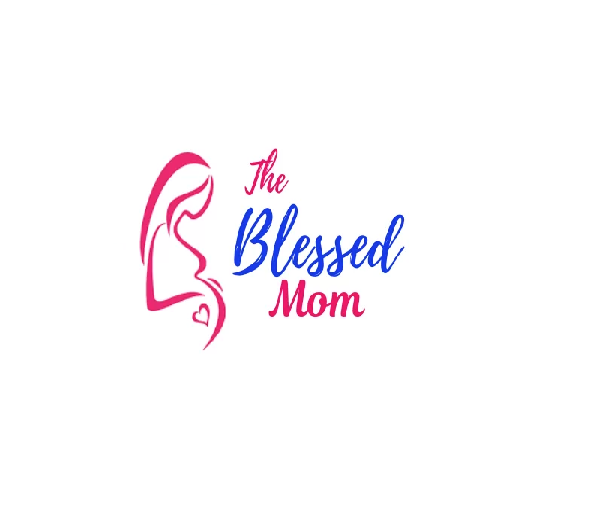Blessedmom, crowned as the Best Pregnancy Blog of 2024, offers an enriching sanctuary for expectant mothers seeking guidance and inspiration. This blog is a treasure trove of meticulously curated content, tailored to empower and educate women on the miraculous journey of pregnancy. From the first flutter of excitement to the final days of anticipation, Blessedmom is there every step of the way. The blog features expert advice from renowned obstetricians, midwives, and seasoned mothers, ensuring reliable and comprehensive information. It delves into a wide array of topics, including nutrition, exercise, prenatal care, and mental health, all crucial for a healthy pregnancy.
Recent Updates
- Effects of Hair Rebonding While Pregnant
Introduction
During pregnancy, women often seek ways to maintain their appearance and feel confident. Among the various beauty treatments available, hair rebonding is a popular choice for achieving sleek and straight hair. However, concerns arise regarding the safety of such procedures during pregnancy. In this article, we delve into the effects of hair rebonding while pregnant and explore alternative options for maintaining hair health.
Is Hair Rebonding Safe During Pregnancy?
Research on the safety of hair rebonding during pregnancy yields conflicting opinions. While some experts believe that it poses minimal risk, others caution against exposing oneself to potentially harmful chemicals during this sensitive period. The decision to undergo hair rebonding while pregnant should be based on individual circumstances and consultation with healthcare professionals.
Chemicals Used in Hair Rebonding
Hair rebonding involves the use of chemicals such as relaxers, straighteners, and neutralizers to alter the structure of the hair. Common ingredients include sodium hydroxide, ammonium thioglycolate, and formaldehyde. While these chemicals help achieve desired results, their prolonged exposure may raise safety concerns, particularly for expectant mothers.
Possible Effects on Pregnancy
The absorption of chemicals used in hair rebonding through the scalp raises concerns about their potential impact on pregnancy. Some studies suggest a correlation between chemical exposure during pregnancy and adverse outcomes such as birth defects and developmental issues. Additionally, the alteration of hormonal balance due to chemical absorption may pose risks to both the mother and the unborn child.
Tips for Safe Hair Treatments During Pregnancy
To minimize potential risks associated with hair treatments during pregnancy, consider alternative options such as natural hair care products or temporary styling techniques. If opting for professional treatments, inform your stylist about your pregnancy to ensure appropriate precautions are taken. Conduct a patch test prior to any chemical application and prioritize the use of products with minimal or no harsh chemicals.
Natural Hair Care During Pregnancy
Embracing natural hair care methods during pregnancy can promote overall well-being and minimize exposure to potentially harmful substances. Explore organic alternatives such as coconut oil, aloe vera, and herbal infusions for nourishing and conditioning the hair. DIY treatments using ingredients readily available at home offer a safer and more sustainable approach to hair care.
Potential Psychological Effects
Beyond physical concerns, the decision to undergo or refrain from hair treatments during pregnancy may have psychological implications. Body image concerns and societal pressures to maintain a certain appearance can contribute to feelings of self-consciousness and anxiety. It's essential to prioritize self-care and focus on nurturing a positive body image during this transformative period.
Understanding Hair Growth During Pregnancy
Pregnancy hormones influence various aspects of hair growth, leading to changes in texture, thickness, and volume. While some women experience thicker, lustrous hair during pregnancy, others may notice increased shedding or changes in hair texture. Understanding these fluctuations can help manage expectations and adapt hair care routines accordingly.
Healthy Lifestyle Choices
In addition to external hair care practices, prioritize healthy lifestyle choices to support overall well-being during pregnancy. Maintain a balanced diet rich in essential nutrients such as vitamins A, C, and E, which are crucial for hair health. Stay hydrated, engage in regular exercise, and practice stress-relief techniques to promote optimal physical and emotional health.
Postpartum Hair Care
After childbirth, focus on postpartum hair care to aid in the recovery process and restore hair health. Be patient with hair regrowth, as hormonal changes may continue to influence hair texture and thickness. Utilize gentle cleansing and conditioning products, and consider incorporating scalp massages to stimulate circulation and promote healthy hair growth.
Conclusion
In conclusion, the effects of hair rebonding while pregnant remain a topic of debate, with considerations for both safety and personal preference. While some women may choose to undergo hair treatments during pregnancy, others opt for natural alternatives to minimize potential risks. Consulting with healthcare professionals and prioritizing self-care are essential for making informed decisions and promoting overall well-being during this transformative period.
More info:- https://theblessedmom.com/hair-rebonding-during-pregnancy/
Effects of Hair Rebonding While Pregnant Introduction During pregnancy, women often seek ways to maintain their appearance and feel confident. Among the various beauty treatments available, hair rebonding is a popular choice for achieving sleek and straight hair. However, concerns arise regarding the safety of such procedures during pregnancy. In this article, we delve into the effects of hair rebonding while pregnant and explore alternative options for maintaining hair health. Is Hair Rebonding Safe During Pregnancy? Research on the safety of hair rebonding during pregnancy yields conflicting opinions. While some experts believe that it poses minimal risk, others caution against exposing oneself to potentially harmful chemicals during this sensitive period. The decision to undergo hair rebonding while pregnant should be based on individual circumstances and consultation with healthcare professionals. Chemicals Used in Hair Rebonding Hair rebonding involves the use of chemicals such as relaxers, straighteners, and neutralizers to alter the structure of the hair. Common ingredients include sodium hydroxide, ammonium thioglycolate, and formaldehyde. While these chemicals help achieve desired results, their prolonged exposure may raise safety concerns, particularly for expectant mothers. Possible Effects on Pregnancy The absorption of chemicals used in hair rebonding through the scalp raises concerns about their potential impact on pregnancy. Some studies suggest a correlation between chemical exposure during pregnancy and adverse outcomes such as birth defects and developmental issues. Additionally, the alteration of hormonal balance due to chemical absorption may pose risks to both the mother and the unborn child. Tips for Safe Hair Treatments During Pregnancy To minimize potential risks associated with hair treatments during pregnancy, consider alternative options such as natural hair care products or temporary styling techniques. If opting for professional treatments, inform your stylist about your pregnancy to ensure appropriate precautions are taken. Conduct a patch test prior to any chemical application and prioritize the use of products with minimal or no harsh chemicals. Natural Hair Care During Pregnancy Embracing natural hair care methods during pregnancy can promote overall well-being and minimize exposure to potentially harmful substances. Explore organic alternatives such as coconut oil, aloe vera, and herbal infusions for nourishing and conditioning the hair. DIY treatments using ingredients readily available at home offer a safer and more sustainable approach to hair care. Potential Psychological Effects Beyond physical concerns, the decision to undergo or refrain from hair treatments during pregnancy may have psychological implications. Body image concerns and societal pressures to maintain a certain appearance can contribute to feelings of self-consciousness and anxiety. It's essential to prioritize self-care and focus on nurturing a positive body image during this transformative period. Understanding Hair Growth During Pregnancy Pregnancy hormones influence various aspects of hair growth, leading to changes in texture, thickness, and volume. While some women experience thicker, lustrous hair during pregnancy, others may notice increased shedding or changes in hair texture. Understanding these fluctuations can help manage expectations and adapt hair care routines accordingly. Healthy Lifestyle Choices In addition to external hair care practices, prioritize healthy lifestyle choices to support overall well-being during pregnancy. Maintain a balanced diet rich in essential nutrients such as vitamins A, C, and E, which are crucial for hair health. Stay hydrated, engage in regular exercise, and practice stress-relief techniques to promote optimal physical and emotional health. Postpartum Hair Care After childbirth, focus on postpartum hair care to aid in the recovery process and restore hair health. Be patient with hair regrowth, as hormonal changes may continue to influence hair texture and thickness. Utilize gentle cleansing and conditioning products, and consider incorporating scalp massages to stimulate circulation and promote healthy hair growth. Conclusion In conclusion, the effects of hair rebonding while pregnant remain a topic of debate, with considerations for both safety and personal preference. While some women may choose to undergo hair treatments during pregnancy, others opt for natural alternatives to minimize potential risks. Consulting with healthcare professionals and prioritizing self-care are essential for making informed decisions and promoting overall well-being during this transformative period. More info:- https://theblessedmom.com/hair-rebonding-during-pregnancy/0 Comments 0 Shares
More Stories


